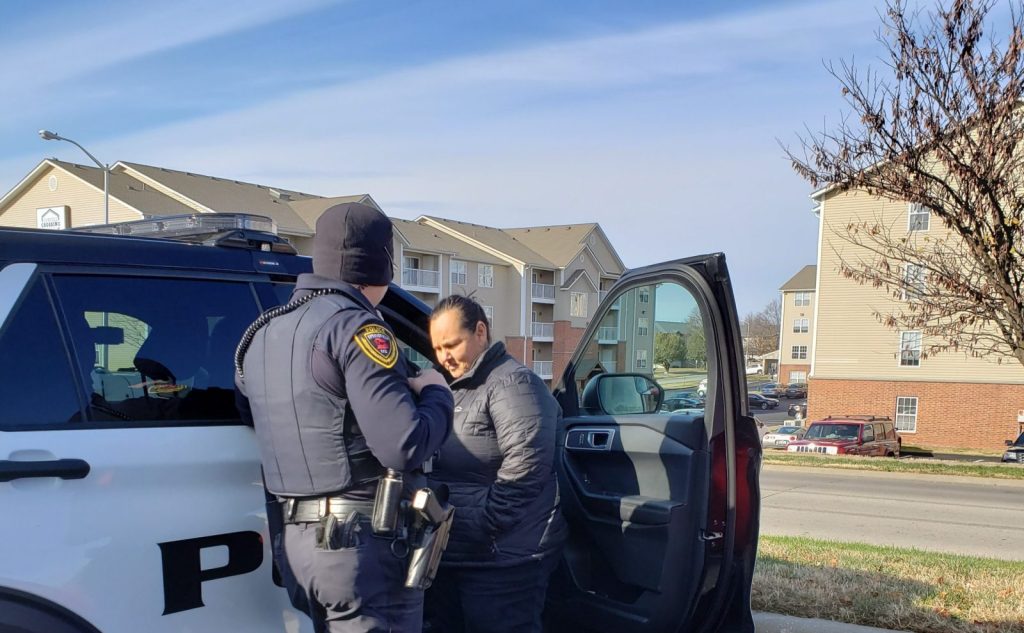Springfield’s Mental Health Co-Responder Program — a collaboration between the Springfield Police Department (SPD) and Burrell Behavioral Health that aims to provide treatment and services to people suffering from crises or issues where laws aren't being broken — is expanding.
SPD was awarded a $797,798 Crisis Intervention Program grant from the Missouri Department of Public Safety, which will allow Burrell to hire five additional care providers and one administrative support specialist, more than doubling the staff of four co-responders. The Springfield City Council voted to accept the grant at its April 22 meeting.
In an April 23 press conference, Springfield Police Chief Paul Williams touted the early successes of the program, but noted that “there’s not enough” to meet the needs of the community.
“We hope this will bridge that gap and really flesh that out,” Williams said. “But as far as the co-responders doing what we expected them to do, I think it's even exceeded my expectation.”
Program saves hundreds of police hours

Launched in 2022, the program pairs police officers with mental health and substance abuse counselors to respond to calls involving people who might otherwise use other emergency services. The mental health co-responders provide them immediate care, evaluations and referrals for treatment and in-home services.
While primarily a collaboration between SPD and Burrell, project director Holli Triboulet emphasized that the city government and the mental health care provider work with a host of agencies that provide different services in the Springfield metro area.
“My goal going into this was how can we make it better by all working together, where we're not duplicating efforts, where we're streamlining… to try to divert people with behavioral health issues out of the legal system and into the treatment that they need,” Triboulet said.
When deemed safe, program staff can respond to calls without law enforcement agents present, saving Springfield police officers 286 hours of time at scenes in the first quarter of 2024, despite having an open job position. With an expanded team, the program is expected to save more than 648 hours of police officer time in the first three months of full staffing.
While recent referrals are primarily composed of face-to-face interactions, co-responders also connect with person52s in need of the program's services over the phone.
New staff will help provide program services 24/7

Though the police department is the recipient of the grant, Williams said it serves as a “pass through” agency for funding to Burrell, which employs the program’s staff. The grant will primarily be used for salary and benefits reimbursements, in addition to some training and equipment services.
Of the five new co-responders, three will be full-time and two will work part-time. The administrative support specialist will take on some Triboulet’s responsibilities, freeing her to provide more direct care.
While the existing staff members are available on-call for emergencies outside of their 40-hour work weeks, Williams said the program doesn’t provide 24/7 coverage. Additional staffing enabled through the grant will change that, potentially allowing for two staff members to be available most of the time.
“I think as we continue to move toward a fully staffed model, you're going to see better efficiencies, more trust, and you'll see those numbers rise, where officers have got more time to do their core mission,” Burrell Behavioral Health Southwest Region president Clay Goddard said.
Long-term funding still in the works
Springfield's mental health co-responder program was established with a $600,000 Missouri Foundation for Health grant — awarded to Burrell — which is set to run out in January 2025. The Crisis Intervention Program grant will fund the collaborative until approximately July 2026.
Though funding beyond the two grants remains undetermined, Williams and Goddard expressed confidence they would be able to secure additional funding as they continue to prove the success of the program.
“We need to prove the efficiency, we need to prove that it frees up officers, and then funding will follow,” Goddard said. “I’m confident of that. Specifically, where it’s going to come from, I can’t tell you, but I do know that by proving value, we’ll be able to provide funding for this.”
Williams said he envisions the program to continue to be a public-private partnership once the grant funding runs out.

